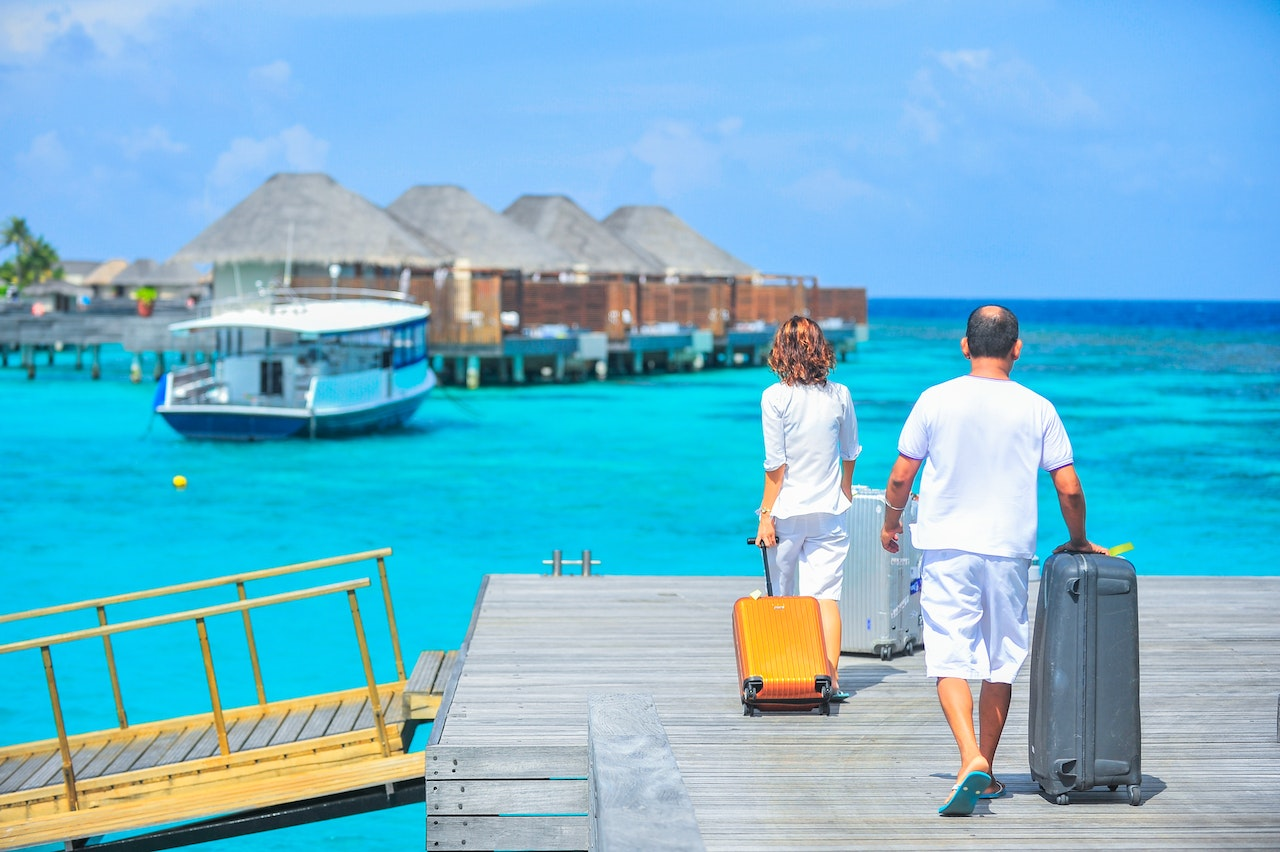
Stay Ahead with the Latest Trends in Travel Marketing in 2023
Introduction
If you have thought of planning your next travel with a loved one, then the first thing you would most probably do is fire up a search engine and then work your way to the itinerary, accommodation, flight tickets, and sightseeing. This behaviour aligns with a Statista report stating that 69.8 percent of people start their travel planning with a search engine to find travel ideas.
Brands and marketers are well aware of this trend and, hence, would target online customers. As a result, we see travel companies vying for the attention of the same customer base. This is where travel marketing comes to the fore. It helps a brand to get a massive competitive edge.
But this will work out only if marketers follow the trends that dominate the present times.
If you are a marketer who wants to know about the trends in travel marketing that are likely to deliver amazing ROI for your ad spend, then this post is just for you. We examine some of the hottest trends in travel marketing that you should focus on. Knowing about them will help you optimise your budget in a way that is likely to generate the best ROI for your investment.

The Dynamic Landscape of Travel Marketing
Travel marketing has always been dynamic. But in the digital age, its pace of change has accelerated dramatically. The rise of online booking platforms, social media, and mobile technology has been a game changer. It has revolutionised how travellers research, book, and share their experiences.
Travel marketers need to understand that what worked yesterday may not work tomorrow. Consumer behaviours and preferences are influenced by factors such as emerging technologies, economic conditions, and global events.
Successful travel marketers are those who remain agile and can pivot their strategies in response to these shifts.
The COVID-19 pandemic is a prime example of how external factors can disrupt tourism marketing. Travel restrictions, health concerns, and changing traveller priorities have forced travel marketers to rethink their strategies. Forward-looking marketers quickly adapted by emphasizing safety, flexibility, and local travel options. As such, they were better positioned to survive and even thrive during the crisis, thanks to future-centric and customer-empathic digital marketing strategies.
As we move to the last quarter of 2023 and beyond, we will examine key trends that will accelerate outcomes in travel marketing.
Trend 1: Virtual Travel Experiences
Virtual travel experiences have gained prominence, driven by advancements in virtual reality (VR) and augmented reality (AR) technologies. Travellers can now explore destinations, hotels, and activities virtually before making bookings on travel business sites. This immersive approach helps travellers make more informed decisions and builds excitement for their upcoming trips.
Successful Implementations
Forward-thinking travel brands are leveraging VR and AR to enhance the booking process. For instance, some hotels like Cancun’s Grand Oasis Hotel 360-degree Hotel VR Tour offer virtual tours of their rooms and facilities. This allows guests to “walk through” their accommodations before booking.
Similarly, tour operators provide immersive previews of their excursions. This gives travellers a taste of what to expect.

Trend 2: Social Commerce in Travel
Social commerce refers to the integration of eCommerce into social media platforms. In the travel industry, this trend has gained traction. People increasingly turn to social media for inspiration, recommendations, and even booking travel-related services.
The Role of Social Media Platforms in Generating Travel Excitement
Platforms like Instagram and Pinterest are particularly influential in travel marketing to impact the target audience. Stunning visuals and user-generated content play a significant role in inspiring travellers and driving them to make bookings. Travel marketers can’t afford to overlook the impact of social media on their sales funnel.
No wonder that even government authorities are harnessing social media as a great way to spread outreach. Take the case of Hawaii Tourism Authority, which leveraged Instagram to promote brand awareness and encourage people to explore the incredibly scenic tourist options available there. They started the hashtag #letHawaiiHappen. This covers user-generated content about the destination so that it creates excitement among social media users to try out the place.
Leveraging Social Commerce
To harness the power of social commerce effectively, travel businesses should develop a strong social media presence. They can collaborate with travel business influencers and provide easy booking options within social platforms. User-generated content, including reviews and travel stories, can also be a valuable resource for inspiring potential travellers.
Look at sites like TripAdvisor, which is at the forefront in tourism marketing social commerce. With the ratings, reviews, and recommendations of TripAdvisor, travellers get amazing snippets of information from genuine tourists. They get to know more about their experiences in a particular city or in a hotel within that city.
Suppose we want to know more about Belgium, TripAdvisor has a separate section on it. Avid travellers can find details about hotels, things to do, flights, vacation rentals, and restaurants. Now, if within Belgium, we want to select a hotel, we can do so and check a list of highly-rated hotels. This page will have tons of information on individual hotels. It goes one step further and allows visitors to book rooms for given dates. Right from discovery to booking, social media helps a person plan their next holiday with ease.
Trend 3: Sustainable and Eco-Friendly Travel Marketing
The Growing Demand for Sustainability
Sustainability and eco-friendliness have become central to travel marketing. An increasing number of travellers are seeking experiences that align with their environmental values. This shift in consumer sentiment presents both a challenge and an opportunity for travel brands.
Incorporating Sustainability
Travel marketers can embrace sustainability by promoting eco-friendly accommodations. Even transportation options and tour experiences can incorporate sustainability. Savvy marketers can highlight initiatives such as waste reduction, energy efficiency, and wildlife conservation. This travel marketing strategy has the ability to resonate with eco-conscious travellers.
Successful Sustainable Marketing Campaigns
Many travel brands have successfully integrated sustainability into their marketing strategies. For example, hotels are promoting water-saving practices, and airlines are emphasizing carbon offset programs. These initiatives not only attract environmentally conscious travellers but also contribute to a more sustainable future for the travel industry.
The best example of sustainability in travel marketing is the controlled entry of tourists prevalent in the Himalayan kingdom of Bhutan in Asia. It charges $200 per tourist to offset the carbon footprint left behind by them. The daily tourist fees have recently come down to re-ignite interest in tourism, but still remains a classic example of how it doesn’t want mass tourism to harm its fragile ecological balance.
Another good example of sustainable travel marketing is the ‘Wave of Change’ initiative that the Iberostar group of hotels started with Expedia Media Solutions.
Trend 5: Mobile-First Marketing
The Dominance of Mobile Devices
Mobile devices have become the primary tool for travellers during the planning and booking phases. Travel marketers must optimise their strategies for mobile users. By doing this, they ensure that websites are mobile-responsive. They also make certain that booking processes are smooth and user-friendly on small screens.
The Role of Mobile Apps
Mobile apps play a crucial role in travel marketing. Airlines, hotels, and travel agencies often provide mobile apps that allow travellers to book flights, accommodations, and activities on the go. These apps should offer convenience in exploration and booking. Features like real-time updates and personalised recommendations will further amplify the digital marketing efficacy of a travel business.
Responsive Design
In addition to mobile apps, responsive web design is vital. Travel websites must adapt seamlessly to different screen sizes and orientations. This will lead to a richer mobile experience that encourages more dwell time and booking potential.
Trend 6: Wellness and Health-Focused Travel
The Rise of Wellness Travel
Travellers are increasingly prioritising their health and well-being when planning trips. Wellness-focused travel experiences are gaining immense popularity. Examples such as spa retreats, yoga getaways, and nature-based activities aptly depict the value proposition of wellness-oriented travel.
Tapping into the Trend
Travel marketers can tap into the wellness trend by promoting destinations and experiences that offer relaxation, rejuvenation, and healthy living. Their digital marketing strategy can highlight a host of features to attract wellness-conscious travellers. These include options such as wellness facilities, healthy dining options, and outdoor activities.
Examples of Wellness Campaigns
Several travel brands have successfully integrated wellness into their marketing. One notable instance is the “Amazing Thailand, The Healthy Journey” campaign launched by the Tourism Authority of Thailand. With this, they want to position the country as a leading hub for health and wellness for people from other countries. This is a good example of how travel marketing fuses wellness into its digital marketing campaigns.
Trend 7: Micro-Moments and Real-Time Engagement
Micro-Moments Defined
Micro-moments refer to the brief, intent-rich moments when consumers turn to their devices for quick answers or to make decisions. In travel marketing, these moments are critical. This is because travellers seek information, inspiration, and assistance in real time. For instance, if you access any portal to check availability, the data is of present availability status for a given set of dates. If it shows wrong information here, it can hamper the entire process of planning for the travel.
Real-Time Engagement
Travel brands can engage with customers during micro-moments. They can accomplish this by providing relevant, timely, and helpful content. This could include responding to inquiries on social media or offering live chat support on websites. Initiatives like delivering personalised recommendations based on a traveller’s current context, too, count towards real-time engagement.
Successful Real-Time Marketing
Effective real-time marketing in travel involves anticipating and meeting travellers’ needs as they arise. Airlines, for example, may provide real-time flight updates. Such time-sensitive digital marketing strategies ensure that there is no double booking of the same seat. Destination marketers can offer instant access to local event information.
Trend 8: Voice Search and AI Assistants
The Impact of Voice Search
Another interesting trend worth mentioning is the fusion of voice search technology into the travel industry. This trend is driven by travellers using voice-activated devices and virtual assistants like Siri and Alexa. They use AI voice support to search for information, book accommodations, and plan itineraries.
Integration of AI Assistants
Artificial intelligence (AI) assistants are increasingly integrated into robust travel marketing strategies. Chatbots, for instance, can assist with booking inquiries and provide personalised recommendations based on traveller profiles.
Optimising for Voice Search
To optimise for voice search, travel marketing experts should focus on natural language keywords. Plus, they need to structure the content to answer common voice search queries. This can improve search engine rankings and enhance the overall user experience. Amazon’s Alexa for Hospitality service is one of the prime travel marketing examples of how it blended with hotel chains’ services to amplify the efficacy of guest experience.
Are you looking for a marketing agency?
Discover the most relevant agencies for your project based on your own specific requirements.
Find an agency!To conclude
That was a compilation of some of the hottest trends that can disrupt the travel marketing agency tactics for the better. When smart marketers embrace these trends, they stand a better chance at meeting key objectives of more site traffic and better conversion potential.
With these trends, travel marketers can connect with travellers in meaningful ways. This way, they can devise a tactical digital marketing strategy that creates memorable journeys to keep customers coming back for more.
Connect with Sortlist if you need a competent digital marketing expert to augment your travel marketing success. These professionals have deep domain experience and can lend their assistance in drawing up a high-impact travel marketing plan that is geared to take your travel business to the next level of success.





